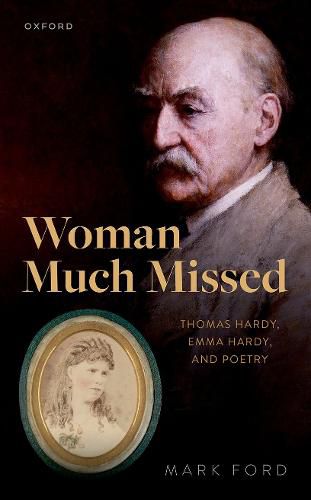Readings Newsletter
Become a Readings Member to make your shopping experience even easier.
Sign in or sign up for free!
You’re not far away from qualifying for FREE standard shipping within Australia
You’ve qualified for FREE standard shipping within Australia
The cart is loading…






Woman Much Missed is the first book-length study of the many poems (over 150) that Thomas Hardy composed in the wake of the death of his first wife Emma in November of 1912. Mark Ford uses these poems to develop a narrative of their four-year courtship on the remote and romantic coast of Cornwall where they met, and then follows Thomas's poetic recreation of the slow degeneration of their marriage and their embittered final decade. Ford shows how Emma's writings and experiences during this time were fundamental to Thomas's evolution into both a best-selling novelist and into one of the greatest poets of the twentieth century.Although for over a decade the marriage between Thomas and Emma had been troubled, and indeed Emma spent much time during her final years secluded in her attic rooms above his study, her death stimulated him to write some of the greatest elegies in English. Twenty-one of these, including masterpieces such as 'The Voice' (which opens 'Woman much missed, how you call to me, call to me') and 'After a Journey' were collected in 'Poems of 1912-13'. While these have received much attention and are often read by school pupils and university students alike, his numerous other poems about Emma have only rarely been discussed. Ford corrects this oversight, providing accessible and insightful readings from a poet's perspective.
$9.00 standard shipping within Australia
FREE standard shipping within Australia for orders over $100.00
Express & International shipping calculated at checkout
Woman Much Missed is the first book-length study of the many poems (over 150) that Thomas Hardy composed in the wake of the death of his first wife Emma in November of 1912. Mark Ford uses these poems to develop a narrative of their four-year courtship on the remote and romantic coast of Cornwall where they met, and then follows Thomas's poetic recreation of the slow degeneration of their marriage and their embittered final decade. Ford shows how Emma's writings and experiences during this time were fundamental to Thomas's evolution into both a best-selling novelist and into one of the greatest poets of the twentieth century.Although for over a decade the marriage between Thomas and Emma had been troubled, and indeed Emma spent much time during her final years secluded in her attic rooms above his study, her death stimulated him to write some of the greatest elegies in English. Twenty-one of these, including masterpieces such as 'The Voice' (which opens 'Woman much missed, how you call to me, call to me') and 'After a Journey' were collected in 'Poems of 1912-13'. While these have received much attention and are often read by school pupils and university students alike, his numerous other poems about Emma have only rarely been discussed. Ford corrects this oversight, providing accessible and insightful readings from a poet's perspective.